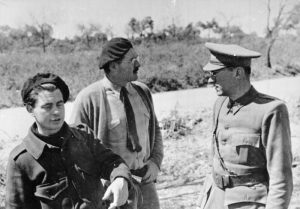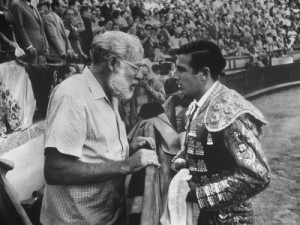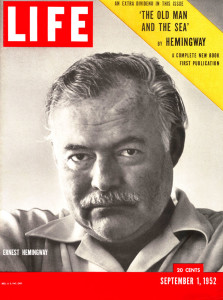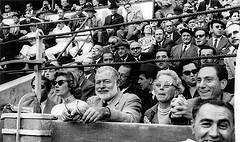In order to write about life first you must live it.
― Ernest Hemingway
We don’t like bull fighting. It’s cruel. We care for and hope the bull will win. We, meaning Americans in general, don’t get it or understand how any civilized people could watch such a sport and actually sit through it and even applaud. I adore animals. I cannot watch the maiming and killings. So what did Hem see that we don’t? He loved animals and he had great heart and empathy.

I have to start by noting that I have always found The Dangerous Summer, Hemingway’s chronicle of a summer following two competing bullfighters, to be a wonderful, original and absorbing book. It started as an Esquire article and expanded to the book. I really loved it but for the killing of the bull scenes. I even understand and can accept the drama of the matadors, their dignity and honor. As much as all of us shun this sport, please take a chance and read the book for the saga and adventure that it was. It is excellent writing and you become part of the pageantry, of the training, and of the honor of being a bullfighter.

Pamplona of course is a key portion of The Sun Also Rises and Brett runs off temporarily with the young matador. She then does her noble act of leaving him so as not to ruin him. Because Spain and Pamplona are so wrapped in the Hemingway image and lore, it is important to know a bit about it, although not imperative to accept that bullfighting is in fact noble in its enactment of the life and death cycle.
So that brings us back to the old philosophical question: Must we avoid a writer because we hate his subject matter? My first post talks about how I don’t like hunting, fishing, war, bullfighting, heavy drinking and yet I love Hemingway. How is that possible? Because in the fewest words possible, Hemingway gets to the heart of what matters, what makes all of us tick, what it means to die and to live. The arena may be war or fishing or bullfighting but it’s about love, hate, living and dying. Thus you don’t have to love his forums to love his books.
I just read in Hemingway’s Cats, a truly lovely book by the way, that Papa lost his love for big game hunting as well as for bull fighting in his last years. He chose later in life to photograph animals in Africa, not shoot them, and felt that bullfighting had become a commericial and depressing spectacle. I admire people who can change opinions and he could to a point.












